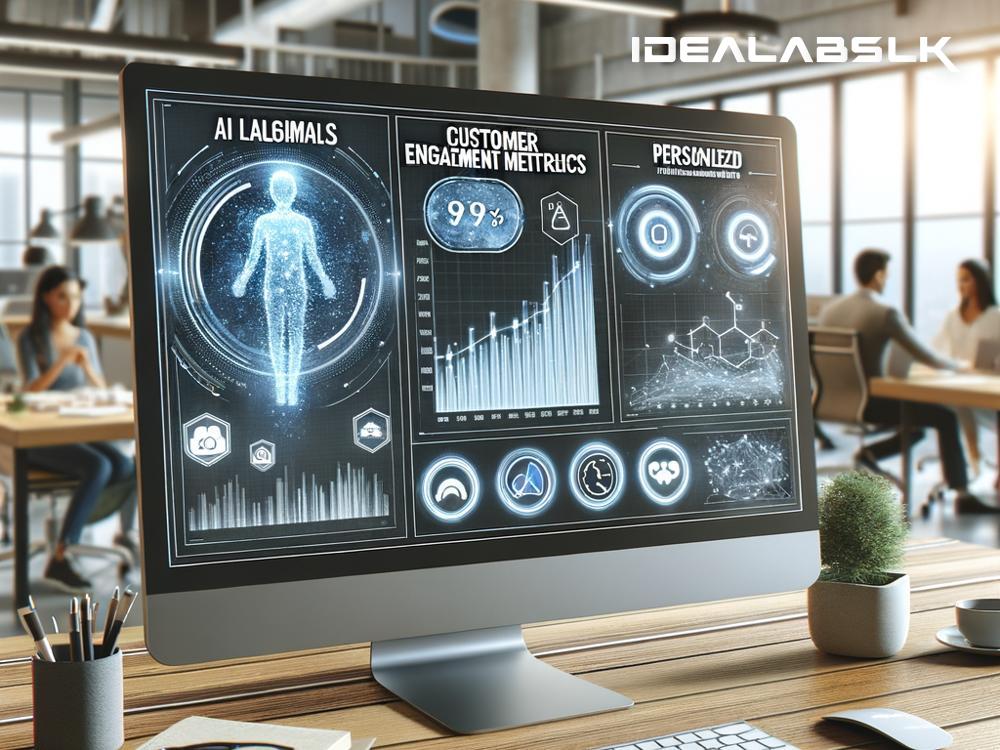Personalization Through Machine Learning in Digital Marketing
In today's fast-paced online world, being general just doesn't cut it anymore. Imagine you're scrolling online and you find two messages waiting for you. One is a generic "Hello, dear customer!" and the other is a "Hey Alex, we thought you'd love this!" You're likely to be drawn to the second, right? That's the magic of personalization — and behind the scenes, machine learning is working tirelessly to make these personal touches not just possible, but incredibly sophisticated.
What is Machine Learning (ML)?
Machine learning is a branch of artificial intelligence (AI) that focuses on building systems that learn or improve based on the data they process. It's like teaching a computer to become progressively smarter over time, allowing it to make predictions or decisions without being explicitly programmed for each and every task.
The Power of Personalization in Digital Marketing
Personalization in digital marketing means tailoring content, offers, emails, products, and more to individual users' interests, behaviors, and preferences. It's the difference between a broad-spectrum broadcast and a targeted message that resonates on a personal level. The result? Greater customer engagement, loyalty, and conversion rates. In essence, personalization makes your audience feel understood and valued, turning casual browsers into loyal customers.
How Machine Learning Fuels Personalization
1. Data Analysis and Insight Generation
Machine Learning algorithms feed on data — the more, the better. Every click, purchase, and even the amount of time spent looking at a product is valuable information. ML sifts through this ocean of data to identify patterns and preferences specific to each user. For example, if you frequently buy science fiction novels, ML algorithms note this pattern and soon, you'll find personalized recommendations for similar books.
2. Predictive Personalization
One step beyond analyzing past behavior is predicting future actions. Machine learning can forecast what a customer is likely to need or want based on their history and broader trends. For instance, if someone regularly buys coffee beans online, a predictive model might suggest they're due for another order before they even realize it themselves. This proactive approach can enhance the shopping experience and deepen customer loyalty.
3. Seamless Omni-channel Experience
Today's consumers interact with brands across various platforms — websites, social media, email, apps, and more. ML helps integrate these experiences, ensuring that personalization is consistent across all channels. So, whether a customer is browsing on a mobile app or a desktop site, the personal touches and recommendations remain tailored and relevant.
4. Dynamic Content Customization
Machine learning can dynamically alter the content a user sees, in real-time, based on their interactions. For example, if a user spends time looking at sports gear, the homepage banners, and highlighted products can automatically switch to reflect sports-related content. This makes each user's experience unique and highly personalized.
Benefits for Businesses
- Increased Engagement: Personalized content is more engaging. Users are more likely to interact with something that feels made just for them.
- Higher Conversion Rates: Personalization can guide users subtly through the purchasing funnel, increasing the likelihood of conversions.
- Enhanced Customer Loyalty: Personal touches engender a sense of loyalty. Customers are more likely to return to a brand that "knows" them.
- Efficiency in Marketing Spend: By targeting users with higher precision, businesses waste less on broad, ineffectual campaigns.
Challenges and Ethical Considerations
While machine learning in personalization offers numerous benefits, it's not without its challenges. Privacy and data protection are paramount. Businesses must navigate the fine line between personalization and intrusiveness. Transparency about data use and ensuring compliance with regulations like GDPR are critical. Moreover, there's the challenge of keeping the human element alive in marketing messages — personalization should not feel robotic or formulaic.
In Conclusion
The fusion of machine learning with digital marketing opens up a world of possibilities for personalization that resonates on a deeper level with each customer. As technology advances, the potential for even more tailored experiences is vast. However, the key to success lies in using these powerful tools ethically and responsibly, always prioritizing the value and privacy of the customer's experience. In doing so, businesses can forge stronger, more meaningful connections with their audience, paving the way for mutual growth and success.

